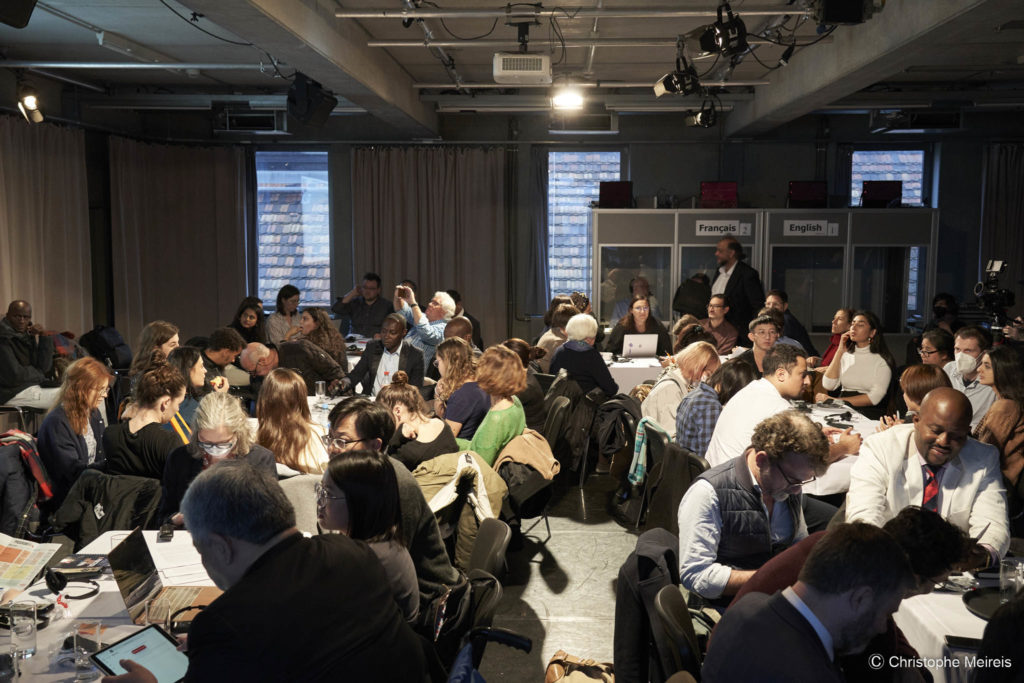
Abolition and Customary International Law
This workshop aimed to educate participants on the standards of relevant customary international law for the abolition of the death penalty and to explore means of entrenching it in international law through customary international law and/or jus cogens norms. Given the notably academic nature of this topic, a key challenge of this workshop was to reconcile theoretical and practical approaches, providing participants with the necessary tools to mobilize these concepts in abolitionist advocacy.
The Example of Abolition in OIC Member States
The objective of this workshop was to study the abolition processes in member states of the Organization of Islamic Cooperation (OIC) and to engage participants in discussions about different approaches to abolitionist advocacy with national authorities. The facilitators aimed to address the topic of the death penalty and Islam, exploring the compatibility of Islamic law standards with international human rights law. They particularly intended to foster interactive dialogue with participants through two working groups. One group would explore the implementation of international human rights law standards in Muslim-majority countries, and the other would examine successful advocacy strategies that mobilized relevant stakeholders in these countries on the issue of the death penalty.
Supporting Civil Society in the Middle East
Despite a global decline in death sentences, four out of the five states with the highest number of executions worldwide are located in the MENA region. Following China, these countries, in approximate order of executed individuals, include Iran, Egypt, Saudi Arabia, and Syria. These nations also rank among those with the most restricted civic space, making it challenging for human rights defenders to carry out their work effectively. Within this context, the objective of this workshop was to assess the needs of civil society in the Middle East and North Africa (MENA) region to enhance international collaboration and support. It also provided an opportunity to discuss the formulation of a resolution and the upcoming Regional Congress Against the Death Penalty scheduled to be held in Amman, Jordan, in July 2023.
Intellectual and Psychosocial Disabilities
This workshop aimed to raise awareness among participants about intellectual and psychosocial disabilities while providing insights into recent developments in this field. Two cases were examined to enable participants to identify intellectual and psychosocial disabilities in two individuals through the study of medical reports and health records. The workshop focused on developing litigation strategies to make these disabilities visible and relevant in court, as well as crafting advocacy strategies for engaging with public authorities.
Sexual and gender Minorities and Discrimination
“This workshop aimed to develop strategies to assist local civil society organizations, lawyers, and journalists in better understanding how criminal laws, including those related to the death penalty, are used to suppress sexual and gender minorities. Facilitators and participants examined the current situation of death penalty application to lesbian, gay, bisexual, transgender, intersex, or queer (LGBTIQ) individuals and the challenges that arise. For instance, the gender identity of individuals accused of a crime can play a role in their trials and convictions, even if they were not arrested for homosexuality. Facilitators also highlighted the lack of information on affected demographic groups and the need to stimulate on-the-ground research, secure funding, and provide specific legal assistance training. Collective strategies to counter anti-LGBTIQ laws, policies, and political statements were also discussed.”
Identifying the Death Row Phenomenon
This workshop aimed to define the phenomenon of death row based on the lived experiences of individuals sentenced to death and to develop a clear and relevant advocacy tool for abolitionist actors. The death row phenomenon is characterized by the prolonged retention of the condemned in harsh conditions, leading to higher rates of psychological and psychiatric disorders compared to the rest of the prison population. These disorders include paranoia, hallucinations, self-mutilation, suicidal thoughts, depression, and a loss of sense of reality, collectively referred to as death row syndrome.
NHRIs and Civil Society
If civil society plays a crucial role in the abolition of the death penalty, National Human Rights Institutions (NHRIs) should not be overlooked, whether for monitoring conditions in death row or for informing and raising public awareness about human rights violations. The objective of this workshop was to identify ways to involve NHRIs in abolitionist processes and to develop a framework of best practices for working with NHRIs in states implementing a moratorium on the death penalty, as well as in states supportive of retaining the death penalty.
Mobilising businesses and non-conventional actors
If mobilizing non-conventional actors is a relatively new challenge, their influence nevertheless makes them key players. The 7th World Congress Against the Death Penalty, which addressed the contribution of businesses to the abolitionist movement, aimed to address the issue by strengthening the capacities of participants. The goal was to provide them with concrete tools for identifying, raising awareness, and mobilizing relevant non-conventional actors in their respective states.